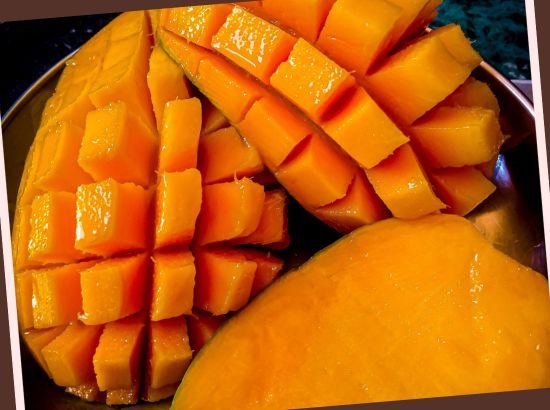
Mango, often referred to as the king of fruits, is not only delicious but can also be highly beneficial for health—if consumed properly. According to Ayurveda, mango is considered a nutritious and medicinal fruit, but if not eaten mindfully, it may also cause certain negative effects. Let’s take a look at what Ayurvedic science says about this popular summer fruit.
As per Ayurvedic principles, ripe mangoes that are properly soaked in water can offer several health benefits. The three primary Ayurvedic benefits of mango include:
Balya (Strength-giving): Mango helps in boosting strength and endurance.
Vrishya (Aphrodisiac): It works as a natural aphrodisiac and supports reproductive health.
Pitta-Shamaka (Balances Pitta): When mango is boiled or soaked in water before consumption, it helps calm excess pitta dosha in the body.
These qualities make mango a powerful fruit in Ayurveda—but only when consumed with care.
Dr. Raghav Thukral, a senior dietitian and nutritionist from Amritsar, says that while mango has benefits, it may also cause certain issues if not eaten correctly:
Cough, phlegm, and chest congestion
Acidity and skin problems
Weight gain
Obstruction or sluggishness in the body
Skin conditions like eczema and itching
Soaked mangoes help cool down the body.
It is a great source of energy.
Improves digestive enzyme activity.
Supports heart health.
Promotes overall physical wellness.
Soak mangoes in water for 30–60 minutes before eating.
Avoid consuming milk with mangoes.
Add cardamom to mango shakes for better digestion.
Limit to 1–2 mangoes per day.
Do not eat mangoes at night.
Avoid mangoes if you have fever, diabetes, or a cough.
Calories: 60 kcal
Carbohydrates: 15g
Sugar: 13.7g
Fiber: 1.6g
Disclaimer: Always consult a doctor or qualified expert before making dietary or health-related changes. The above information is for general awareness and not a medical recommendation.